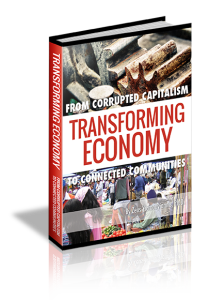Growing the soul means maturing what one emphasizes in relationship

Zeus Yiamouyiannis, Ph.D., Aug 08, 2024

I have been hearing a lot lately about finding a “high value” partner, someone that can support you comfortably in all the worldly ways and “love you forever” in all the emotional and romantic ways.
This strikes me as not only selfish and short-sighted but spiritually primitive. Yes, we are taught, even today, seventy-odd years past the 1950’s, to search for a “forever person” who will sweep us off our feet and offer heaven in a bottle… or, at least, a nice suburban enclave with nice schools. We give lip-service to those intangible qualities that make up what we know to be a morally, ethically, and spiritually “good” person.
I sometimes wonder if we were offered a choice between a rich, handsome lout/ entitled princess and a grounded, creative, funny, dependable, and caring workaday Joe or Joline, how many of us would opt for the former. What we say we want, and what we go for are often at odds, because the allure of material security and success frequently hold sway over spiritual integrity and adventure.
Does this betray your level of spiritual maturity? Ummm. Yes. But that is why I am writing this article. It is a kind of spiritual education on spiritual relationship, based on the discussion I offered in a previous article on the ascension from “having” to “doing” to “becoming” to “being,” In this article I specifically apply that discussion of spiritual development toward romantic relationships.
If you have not read this previous article on the spirituality of having, doing, becoming, and being, here is the link. In the meantime, read on…
The high value mate (to “have”)
The lowest level of spirituality involves “getting” or “bagging” a partner high in evolutionary “mate value” to match or exceed your own. This is called “marrying up” or “pairing upward” in the dating marketplace. But marrying up based on what?: On physical attractiveness, financial income and security, social reputation, professional advancement, country club candidacy, and so-forth. Is it understandable to think that “I want to aim for the highest station in worldly life”? Yes. Is it spiritual? No. To aim for the “having” is to dispose of (or neglect) the doing, becoming, and being. It is superficial, contractual, and hollow but it promises all the thrills the physical world can offer. It promises comfortable survival, but not deep thriving, and it comes with its own hazards:
Men and women have different bases of “mate-value” depending upon the sex, and this valuing is far from soulful.
The men who have high mate value are the ones with high status, guys who are intelligent, ambitious, with good incomes. These kind of men, even when they’re older can be very attractive to a lot of women.
For women the biggest thing contributing to our mate value is physical attractiveness. Yes, lots of other things count big time, like intelligence, great personality and all the rest, but these things are mainly attractive for specific men. In terms of general attractiveness it’s the physical stuff that’s important for women’s mate value.
Nor are these worldly aspirations any guarantee of honorable, loving treatment.
The thing is, a guy who’s good looking, wealthy, etc.; he’ll have lots of options but it doesn’t mean he’ll make those options happy. Having high mate value is not the same as having high value as a partner, paradoxically.
If a guy has high mate value he might not appreciate you and treat you the way you want – and there is actually research evidence showing that guys who are good looking basically aren’t so nice, and the same goes for wealthy men. They don’t have to try that hard.
Oops, turns out you might not want to invest in this short-term venture where you might be disposed of as soon as your “market value” diminishes. Let’s try the next level.
The high quality mate (“to do”)
“High quality” mating, involves finding someone with a proven track record and skills that will allow them to be a reliable partner in child-rearing, providing, sharing chores, going on adventures, and generally co-creating or making a life together. Here one emphasizes steadfastness, willingness to work, communication, protection, contribution, loyalty, affection, and so forth. High quality mates depend more upon what they can do and share than what they have. In this sense, “high quality” connotes a certain equality and mutual input, a kind of dance, where both people may have different roles, but the respect they accord each others’ contributions is strong and laced with appreciation.
I talk about this kind of relationship when I discuss, the “Social Man” in my book, The Spiritually Confident Man: Pioneering a New Frontier of Co-Creative Masculinity. Here you have the modern version of equality between the sexes in which something else presides than “what you can get me”. The new indicator of a successful relationship is: “What can we do together in a fulfilling way?” This is, by all means, more developed than simply using one another to get up in the world. However, this “high quality” framework still lacks concern for the independent spiritual and emotional growth of one’s romantic partner. There is still a somewhat contractual (versus unconditional) understanding of committed relationship.
Something important is missing— deeper advocacy for and from your partner. Let’s try the next level…
The high virtue mate (“to become”)
A virtue is a “moral, social, or intellectual” “trait of excellence”. In relationships these virtues might be evidenced by interpersonal generosity, courage, joy, mercy, dignity, tenacity, selflessness, honesty, justice, and discernment. In a high virtue relationship, you don’t just “go along to get along” or “get while the getting is good” but you have a moral tensile strength to stand up for yourself and your partner in the face of adversity, and you have the truthfulness about yourself and your relationship to express humility and open yourself to growth.
In practical terms, one is willing to listen in high virtue relationships to the wisdom of one’s higher self as well as that of the other person. Partners are not only willing but eager to learn more deeply about each other. “Wanting and working for the best in the other from the best in yourself” becomes an operational motto and commitment on the part of persons in relationship. Increasingly one is being loosed from the strictures of self-satisfaction and involvement toward finding great self-fulfillment in service with others. One delights in growth, spiritual and otherwise, and can admire and appreciate sacrifice. One learns to “pay forward” sacrifices others have made for one’s own growth and advancement.
This high virtue relationship lends itself well to a “virtuous circle” in society and community in which the success and benefit of one adds to the success and benefit of others. It is far more substantive, and broad and deep in its reach and implications. Virtue supports and serves as the foundation of moral, mental, emotional, and social health.
This sounds amazing, but let’s “level up” one more…
The high spirit mate (“to be”)
Finally we arrive at the “high spirit” mate. What is there left to have, do, or become? Not much. The previous developmental embodiments of relationship have largely taken care of the having, doing, and becoming. What, then, does it mean to “be” in relationship? How is this an advancement?
As one sheers away all the attributes of relationship and selfhood, as one ascends through having, doing, and becoming, a precious human/spiritual gem is uncovered, that of what I call “divine genius” in my book, The Spiritually Confident Man. Divine genius is that nowhere-else-in-the-universe special gift that you and you alone have to offer this existence. You have been honed and “sanded” through all the having, doing, and becoming. Many of the conceits and insecurities have fallen away. Your mortality and vulnerability are at their utmost, allowing you to be creatively, lovingly, and urgently offering your “core” and deeply drinking in the core of your partner.
Gone are the conceits. Insecurities may still linger, but they do not exercise a censorious power. There is a certain boldness that comes from knowing you can leave everything on the table, so that you can “see what happens” if you fully open and devote yourself in trust of the spirit. This is the time of active faith within you and between you and a romantic partner. It is a time of integration more than a time of transcendence. Instead of simply leaving sex behind, for instance, you may delve into spiritual sex (tantric, etc.). Instead of “walking off into the sunset”, you probe toward the stars.
You have nothing to lose, and everything to freely receive. Grace abounds. You have lived a good life, and now it is time to offer that life on the altar of divine guidance in which the subtlest and deepest intuitions direct you beyond preference, beyond duty, beyond even simple learning, to a certain denouement, an unleashing, an “untying” of all life knots, and a complete freeing of the spiritual self (from one’s ego) into the freed spiritual self of your romantic partner…
The true spiritual union of freed selves choosing each other.
All blessings,
Zeus
